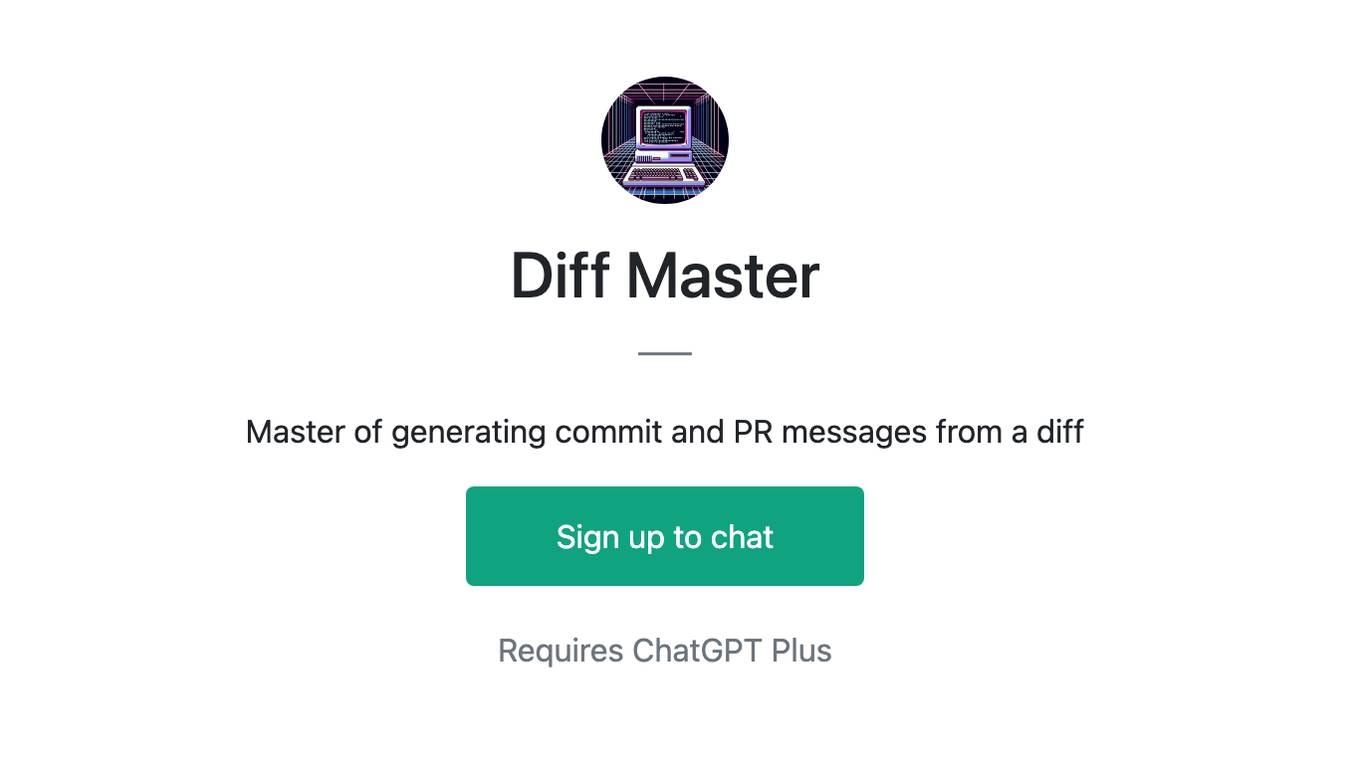Best AI tools for< Diff Prompts >
6 - AI tool Sites
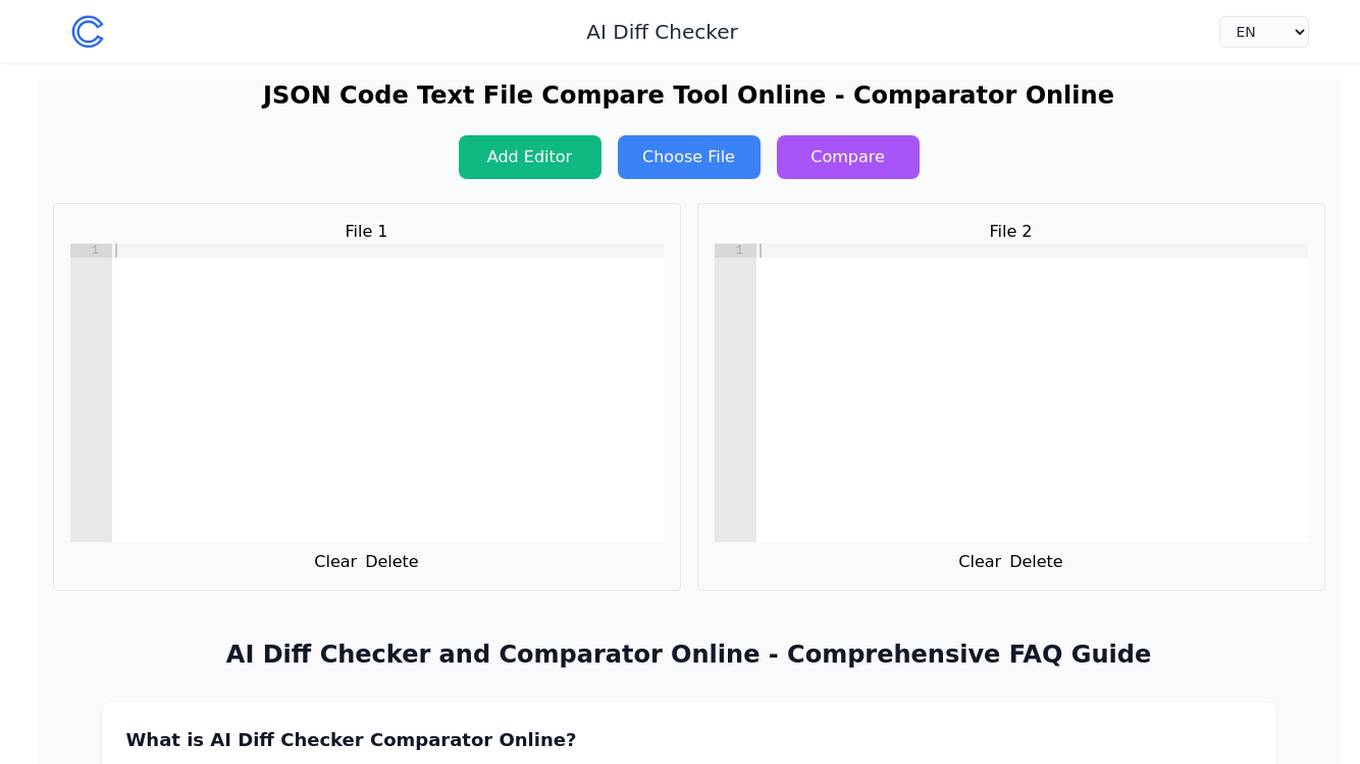
AI Diff Checker Comparator Online
The AI Diff Checker Comparator Online is an advanced online comparison tool that leverages AI technology to help users compare multiple text files, JSON files, and code files side by side. It offers both pairwise and baseline comparison modes, ensuring precise results. The tool processes files based on their content structure, supports various file types, and provides real-time editing capabilities. Users can benefit from its accurate comparison algorithms and innovative features, making it a powerful and easy-to-use solution for spotting differences between files.
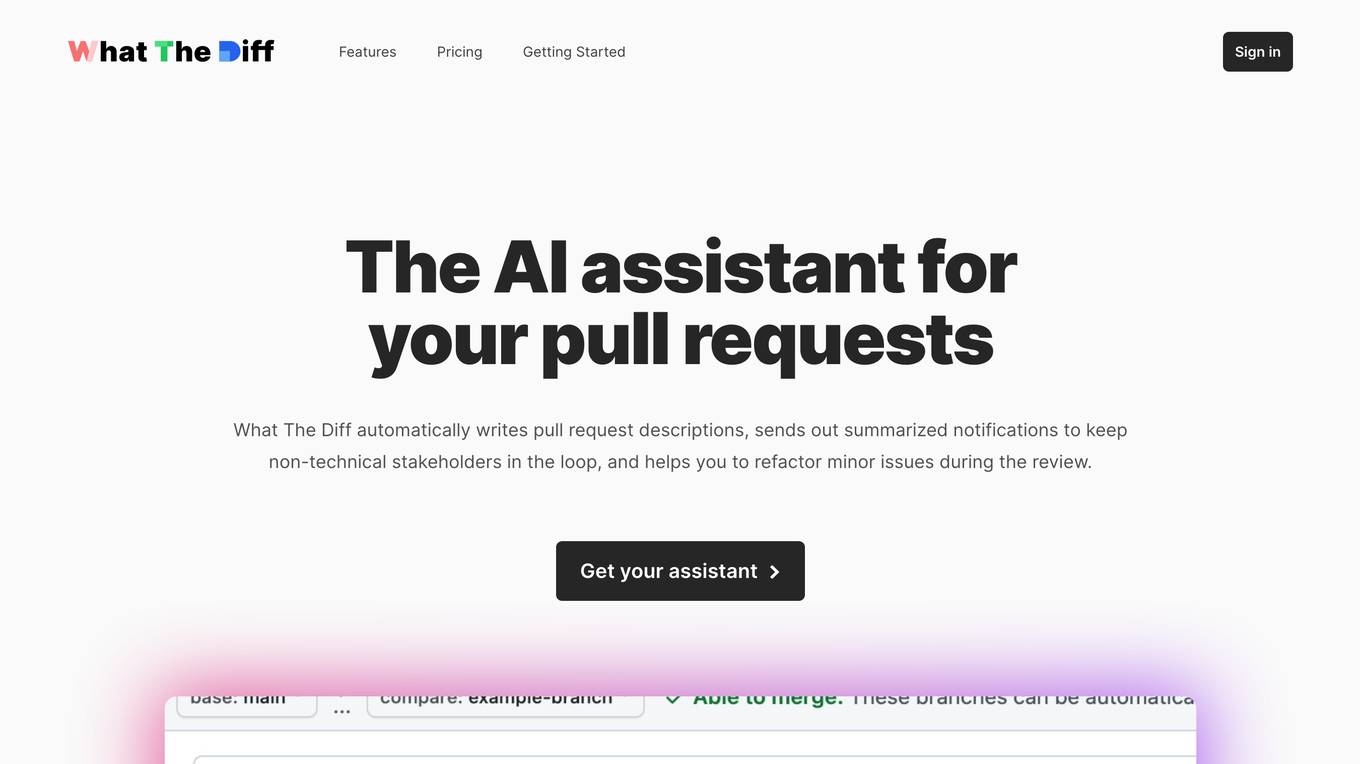
What The Diff
What The Diff is an AI-powered code review assistant that helps you to write pull request descriptions, send out summarized notifications, and refactor minor issues during the review. It uses natural language processing to understand the changes in your code and generate clear and concise descriptions. What The Diff also provides rich summary notifications that are easy for non-technical stakeholders to understand, and it can generate beautiful changelogs that you can share with your team or the public.
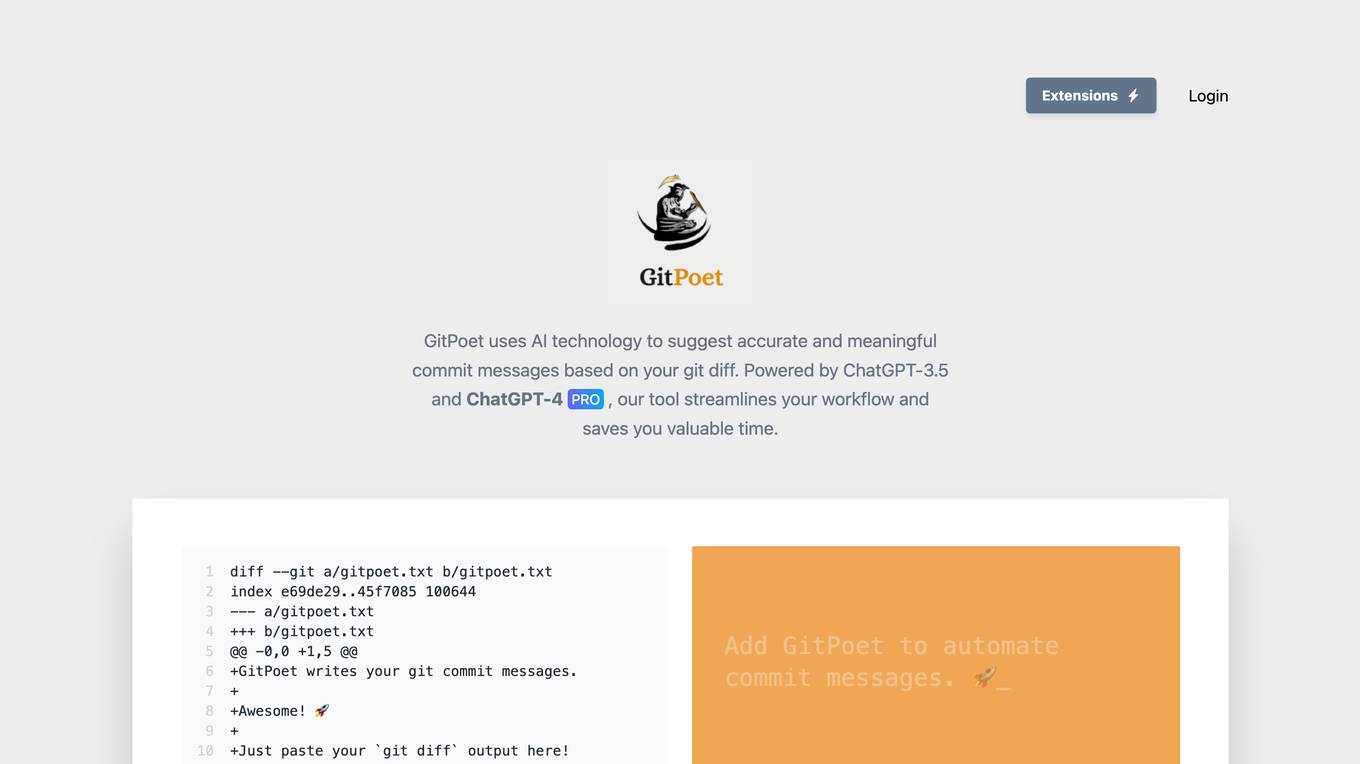
GitPoet
GitPoet is an AI-powered tool that generates meaningful and accurate git commit messages based on your git diff. It utilizes advanced AI technology, specifically ChatGPT-3.5 and ChatGPT-4 pro, to streamline your workflow and save you valuable time. With GitPoet, users can easily create automated commit messages by simply pasting their git diff output.

Hexowatch
Hexowatch is an AI-powered website monitoring and archiving tool that helps businesses track changes to any website, including visual, content, source code, technology, availability, or price changes. It provides detailed change reports, archives snapshots of pages, and offers side-by-side comparisons and diff reports to highlight changes. Hexowatch also allows users to access monitored data fields as a downloadable CSV file, Google Sheet, RSS feed, or sync any update via Zapier to over 2000 different applications.

Confident AI
Confident AI is an open-source evaluation infrastructure for Large Language Models (LLMs). It provides a centralized platform to judge LLM applications, ensuring substantial benefits and addressing any weaknesses in LLM implementation. With Confident AI, companies can define ground truths to ensure their LLM is behaving as expected, evaluate performance against expected outputs to pinpoint areas for iterations, and utilize advanced diff tracking to guide towards the optimal LLM stack. The platform offers comprehensive analytics to identify areas of focus and features such as A/B testing, evaluation, output classification, reporting dashboard, dataset generation, and detailed monitoring to help productionize LLMs with confidence.

cubic
cubic is an AI-native code-review platform that leverages artificial intelligence to conduct code reviews for complex codebases. It helps teams identify hard-to-find bugs in pull requests and the entire codebase, providing context-aware feedback and summaries to enhance the review process. cubic continuously scans codebases for bugs and vulnerabilities, triages issues, enforces coding standards, and learns from team feedback to improve over time. The platform offers features like automatic PR descriptions, one-click issue fixes, intelligent diff ordering, and visualizing high-level changes. With a focus on security and privacy, cubic ensures that code remains secure and private by not storing or training AI on the code. It supports various programming languages and offers different pricing plans tailored to different team sizes and needs.
1 - Open Source AI Tools
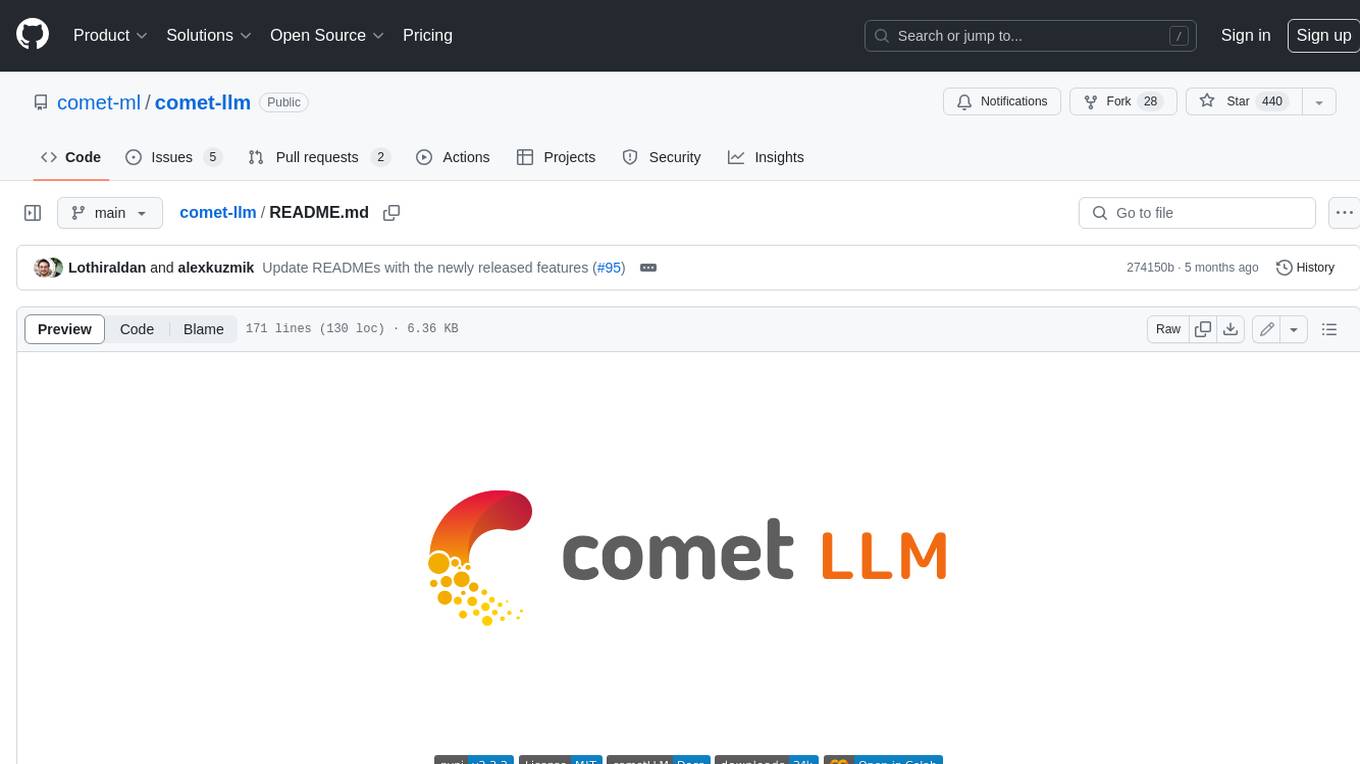
comet-llm
CometLLM is a tool to log and visualize your LLM prompts and chains. Use CometLLM to identify effective prompt strategies, streamline your troubleshooting, and ensure reproducible workflows!
